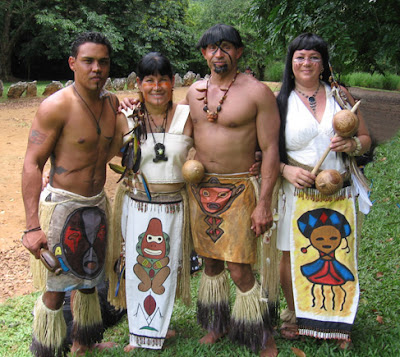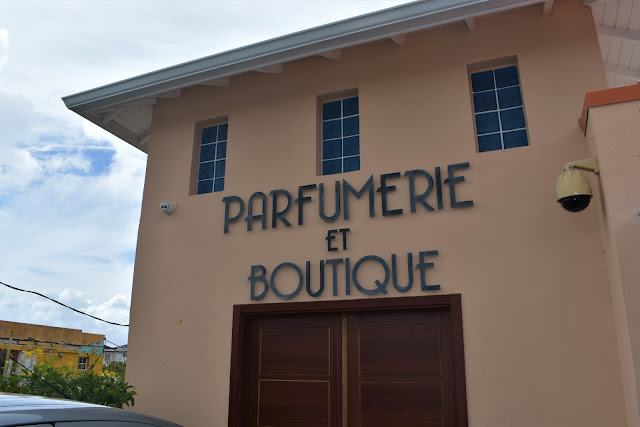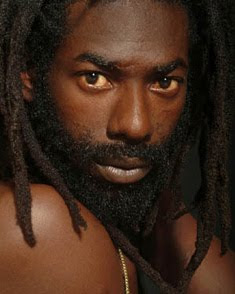Puerto Rico's Taino Culture
The original inhabitants of the Caribbean region of North America were the Arawak, Taino and Carib native peoples. The Tainos are a subgroup of the Arawaks and are recognized as the founders of the island of Boriken or Puerto Rico. These were the people who offered a peaceful welcome to Columbus in 1493. They didn't know the cruelty and violence that would follow his so-called "discovery" of the land that they had cultivated for centuries. Despite official government pronouncements that the Taino have been killed off by the massacres and slavery that followed in Columbus' wake, they live on. As demonstrated in the photo above by members of the Puerto Rico Folklorico Dance & Culture Cultural Center, Taino traditions, food and names remain strong. Throughout Puerto Rico, town names like Mayaquez, Utuado and Caquas echo the Taino language as do the musical instrument maracas and hamaca or hammock. Legends of Taino warriors, like Hatuey, who organized the battle against the Spanish and who famously replied, when told to repent and go to heaven as they burned him at the stake, "If there are Spaniards in heaven, I'd rather go to hell," remain an important part of Caribbean history. Currently there is a movement to reclaim indigenous recognition for Taino ancestors throughout the Caribbean.



Comments
Many thanks.
Greetings from London.
Honeymoon In India
Thanks for the links. I clicked back to the home page of indigenouspeople.net. A great resource, that I'll be going through.